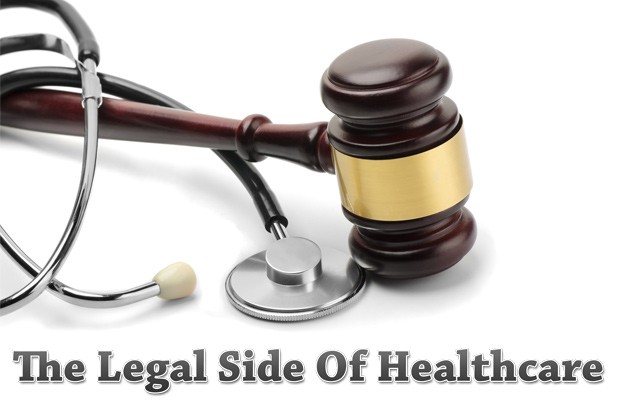The Legal Side of Healthcare

Most people I meet with want nothing more than to have their “affairs in order.” They might not really know what that means, but they know that’s what they want. Having your affairs in order can mean a multitude of different things depending on what you’re focused on, like avoiding probate or protecting assets from the cost of long-term care. But when it comes to healthcare, getting your affairs in order can be very easy and inexpensive. You just have to make planning a priority.
From a legal perspective, getting your healthcare affairs in order means executing three essential planning documents: the healthcare power of attorney, the living will, and the HIPAA authorization.
The Healthcare Power of Attorney
The healthcare power of attorney is a legal document in which you grant authority to one or more trusted individuals to direct your healthcare for you if and when you are no longer able to handle those things yourself. Signing a healthcare power of attorney does not mean you cannot manage your own affairs; it simply puts in place a safety net in case you are one day unable to do so. The person designated as your health care power of attorney cannot make decisions that are contrary to your expressed wishes.
Many people are confused about the difference between the healthcare power of attorney and guardianship. First and foremost, while anyone with the appropriate mental capacity can execute a healthcare power of attorney without court involvement, there is no way to sign over guardianship to another person.
To be named guardian over someone, you must file a petition in circuit court and request an order from a judge granting you the authority you need to manage the healthcare of another person. Guardianship is much more formal and expensive; therefore, we often use guardianship as a last resort and pursue it only when there is no way to have a healthcare power of attorney validly executed because of a lack of mental capacity.
A second instance in which guardianship might be necessary is when a healthcare power of attorney would not grant sufficient authority to deal with the issues at hand. In other words, because a healthcare power of attorney document cannot grant authority to make decisions that are contrary to the express wishes of the person who granted the power, families are sometimes forced to pursue guardianship when a member is making dangerous, unsafe decisions because of age or illness and they need to override those decisions.
The Living Will
Many people are also confused by the difference between the healthcare power of attorney and the living will. The living will is essentially the end of life document. It doesn’t necessarily designate a decision maker for general medical decisions; instead, it states your wishes clearly and in writing for end of life care.
Most living wills state that any and all care is authorized if you are sick and could possibly recover, but if you are in a permanent vegetative state, life support machines are specifically rejected. The document usually also clarifies that any and all pain care is authorized, even if it might shorten your life, in order to make you comfortable.
No one likes to think about this type of scenario, but it is essential that you put your wishes in writing. For an extreme example of what can happen when you do not, recall the Terri Schiavo fiasco of the 1990s, an end of life case that spent over a decade in the court system and ultimately involved both Governor Bush of Florida and President Bush before it was over.
Terri was a young wife who suffered a sudden and unexplained cardiac arrest that caused severe brain damage. She was in a coma for two months, and when she emerged from the coma, her doctors determined that she was in a “persistent vegetative state” with no hope of recovery. After several years of attempts at rehabilitation, Terri’s husband petitioned the court to have his wife’s feeding tube removed. Terri’s parents objected; they were not ready to give up.
Because Terri had never executed any sort of healthcare documents, her wishes were not clear and her care was put in the hands of courts and politicians. Terri was kept alive on machines for fifteen years before all appeals were finally resolved and the court ordered that Terri would have wanted the feeding tube removed.
The HIPAA Authorization
This last document is the least discussed of the healthcare documents, but it is still important. HIPAA is the federal privacy law that restricts disclosure of protected health information, and the HIPAA authorization document is simply the means by which you can authorize your medical professionals to release this protected information to your family members if you are not able to request this information yourself.
One of the keys to success in life is proper planning. When it comes to planning for the legal side of healthcare, having these three documents in place before you need them is all it takes to properly plan.









0 comments